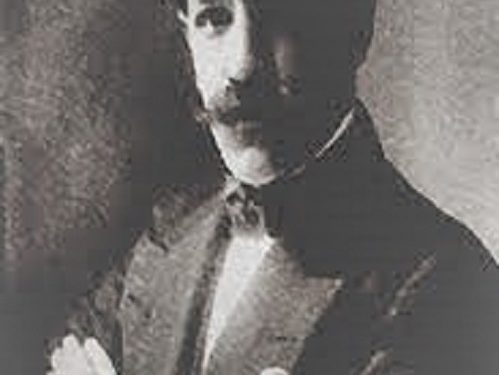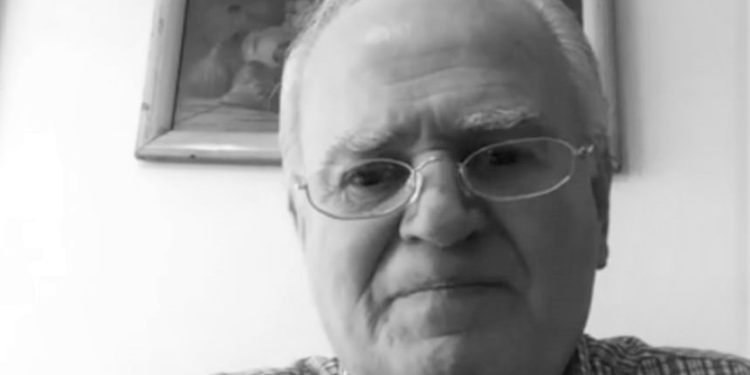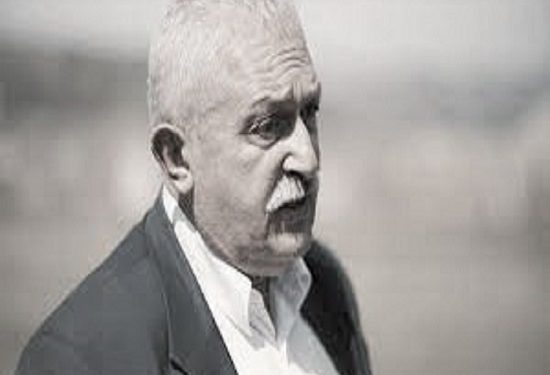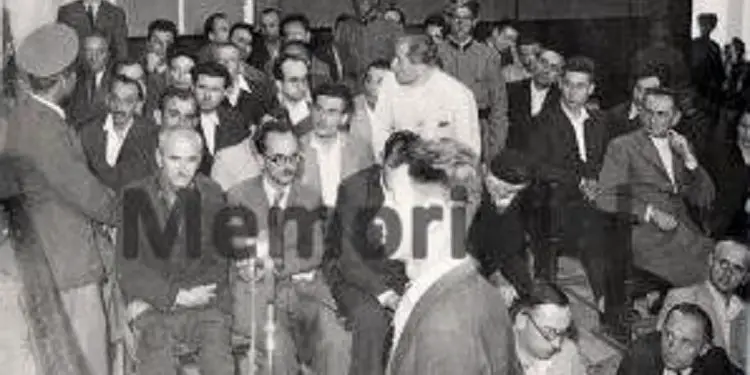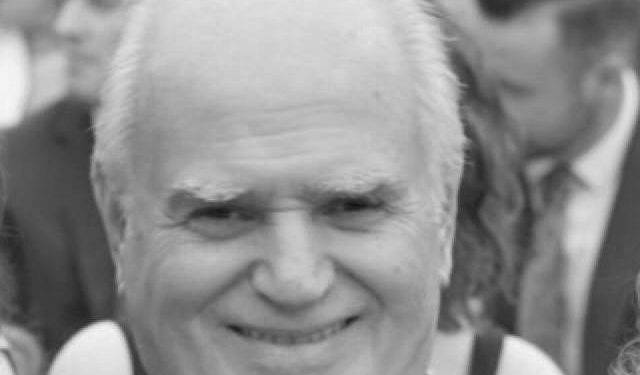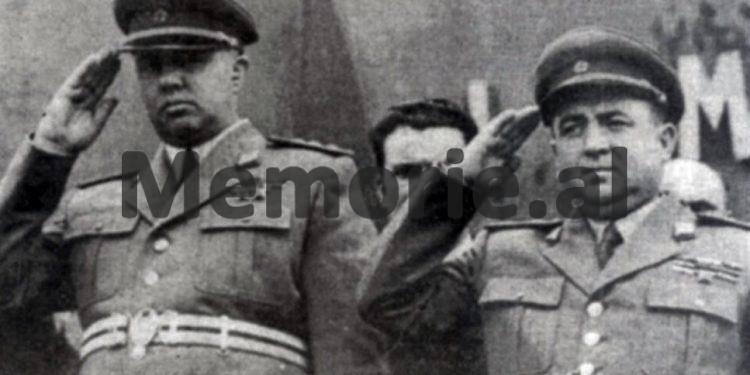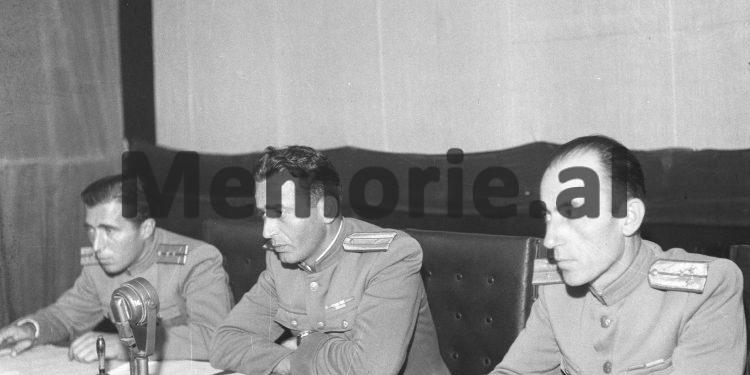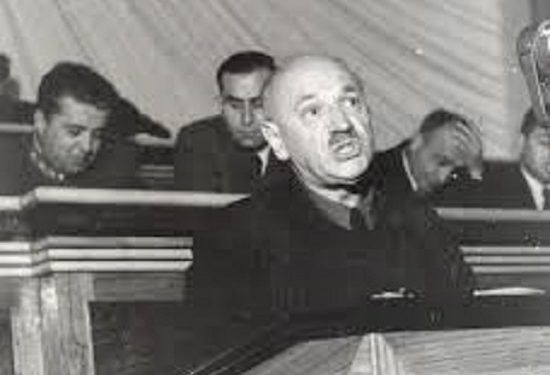Interviewer: Marcel Hila
The first part
Memorie.al/ Missing: Riza Dani. Sufferers: His family, of whom his brother, Dan Hasani and his two sons, Xhevati and Xhelali, served long prison sentences and internments. Together with his brother, Dan Hasani, they are the initiators of raising the flag in Shkodra, in 1913, together with their compatriots and family friends, Luigj Gurakuqi, Gjergj Fishta, Dom Ndre Mjeda, Maliq Bushati, etc. In 1921, Rizai was elected a member of the first Albanian parliament; was re-elected in 1924 and Noli’s government appointed him prefect in Durrës. When Zog came to power, as an opponent of his platform, Rizai left for Italy and then for Austria. With patriots and nationalists fought for the liberation of the country and after World War II, on December 2, 1945, he was re-elected deputy. On December 31, 1947, Riza Dani was sentenced to be shot for conspiracy against the state. The body has not been found yet, but according to his relatives, it may have been buried at the place known as Bami’s Tomb. But there are opportunities in Linza as well. The whole family was persecuted, their belongings confiscated and the ordeal of exile passed.
Testimony Kujtim Dani, grandson of Riza Dani
The son of Shkodra, deputy of the three legislatures, buried and without a grave.
Forget is the second murder of this people!
Dear Mr. Kujtim, thank you for coming to give us your memories, as a relative of Mr. Riza Dani, one of the many martyrs who died unjustly, condemned by the communist regime. What can you tell us about his life and what do you know about the reasons for which he was arrested and convicted by the regime?
I think oblivion is the second murder of this people. Rizai was a citizen of Shkodra with moral, patriotic and intellectual civic training. He came from a Shkodra citizen family for generations. I have extracted the history of my blood and I know that the Danaj have been in Shkodra since the 16th century and a little earlier. We are originally from the upper Gojan of Puka and came to Nenshat during the war, even Danaj and Çobaj, Catholics are from a babe.
I have some documents written by Dan Hasani and Riza Dani. Rizai went to Istanbul to university and there finished for administration. During his university years, he came in contact with patriotic groups and Albanians living, working or studying in Turkey, in Istanbul. When he returned to Albania, to Shkodra, he engaged in patriotic groups, together with his brother, Dan Hasani.
In the years 1908-1912, Riza Dani was a member of the club “Gjuha Shqiptare” in Shkodra, with family friends: Gjergj Fishta, Luigj Gurakuqi, Dom Ndre Mjeda, Maliq Bushati. These have been house friends, and bread friends. In 1913, together with his brother, Dan Hasani, they were the initiators of raising the flag in Shkodra, informing the Montenegrins and Serbs that Shkodra is an Albanian part, it is one with Vlora, with the raising of the flag of Vlora.
In 1914, with personalities such as Sotir Peci, Hoxha Kadria and others, Rizai was the initiator of the establishment of the “Secret Committee”, with the aim of fighting against the risk of fragmentation and extinction of Albanian independence and, mainly to protect Shkodra from Montenegrin and Serbian danger.
Together with nationalists and other patriots, they created the political organization “Krahu Kombëtar”, which later, in 1921, became a parliamentary party, while Riza Dani was elected deputy representative of Shkodra.
The Kosovo Committee was established in Shkodra, under the leadership of the noble patriot, Hoxha Kadria, with members: Hamit Gjylbegu, Riza Dani, Hysni Curri, Eqerem Begolli. In 1918, this committee was greatly assisted in its national activity by the American Red Cross. Hoxha Kadria, Riza Dani, Qerim Begolli participated in the Durrës Congress. Even in 1924 he was re-elected deputy, together with nationalists and fellow patriots, such as: Luigj Gurakuqi, Father Gjergj Fishta, Dom Ndre Mjeda, Maliq Bushati, etc., while the government of Noli appointed him prefect of the region of Durrës.
With the arrival of Zog, Rizai did not agree with his platform and was in opposition. Despite the support of his brother, Dan Hasani, one of the greatest merchants, a well-known benefactor in Shkodra and a man with popular support (even the mill that was at the top of Shkodra, at the Buna Bridge, was called “Vllaznit Dani”), Rizai was forced to leave the homeland. He stayed for some time in Zadar and then moved to Graz, Austria. During the time that Zog was in power, he remained in emigration for 15 years.
It’s a beautiful episode that I think should be mentioned. On a cold winter day, February 1931, Sejfi Vllamasi and Xhevat Korça arrive in Graz. Both of them were Riza’s gardeners, because all three of them were married to three sisters. Xhevat Korça had killed Ceno Beg Kryeziu in Prague, Zog’s brother-in-law, because he was married to Zog’s sister. They went to his house and Rizai opened the door. “What are you here for in this cold weather?” he asked. “Listen,” they say, “Ahmet Zogu has come to Vienna for treatment and we have decided to carry out the assassinations.” Rizai waits for them: “Then, I do not open the door for you to enter the house. I am surprised, Mr. Sejfi, for you as a nationalist and patriot that you are, how did you come here to me, knowing my convictions against the assassination, as an ugly and not manly crime, especially in foreign lands?! This is what Chetnik and Bolshevik guerrillas do: they kill behind their backs, especially in foreign lands. We must gather and make a better program than Zog, for the construction and development of Albania, and present it to parliament. If we win, we will overthrow Zog with votes, and not with such shameful murders. You have no place in me”! He shut the door on them and refused to let them in.
Rizai has never wavered or compromised on his convictions. For patriotic obedience and for manly obedience, he never said, “Well, we can do it, we can do it.” He has been very strict, honest and fair.
After the occupation of Albania by Italy, in ’39, Rizai returned forever and joined the patriots and nationalists for the liberation of the country from the foreign invader. He did not accept the government of Shefqet Vërlac or Mustafa Kruja. In both governments, Xhevat Korça was a minister and Sejfi Vllamasi a minister. I have read this book, where he states: “I went in there, after Xhevati asked me, that I was out of work”.
Rizai with the Democratic Nationalists participated in the Democratic National Liberation Front for the liberation of the country from the occupiers and for its construction. He took part in the meeting of Tapiza in ’43, where the ‘Committee of National Salvation’ was formed with the program of the liberation of Albania in the borders of 1913 and for the universal right to self-determination. These were the basic pillars of this committee. These are the official documented facts. Then with injustice the story is always made by the winner. But this is not true.
Riza Dani, in the elections of December 2, ’45, is elected for the third time deputy of the city of Shkodra. As far as I know, not that I want to praise the man of my blood, but I have not yet seen a person like Riza Dani, elected three times MP: on ’21, ’24, and ’45. This gives me a moral right to think that he had a patriotic axis in his character; it was not “I’m going here, I’m going there, and I’m going here …”!
Another thing I heard 4 years ago, when someone in parliament stated: Riza Dani for Shkodra gets 7,680 votes, while his opponent, Tuk Jakova, member of the leadership of the Communist Party, gets 7,078 votes. It was a document from the state archive.
After the war there were many major problems in organizing the country. The organs of the new state were inexperienced. Many orders and actions did not serve the establishment of a normal state, but were carried out with initiatives and in secret, seemingly incomprehensible and chaotic.
Rizai and Gjergj Kokoshi also discuss imprisonments and extrajudicial shootings, or just an order on a piece of paper full of intellectuals, patriots, clergy, students, merchants, landlords, military, clerks, citizens and highlanders, peasants with patriotic social authority. . Any attempt for democracy, patriotic pluralism and opposition in the Constituent Assembly and beyond was not supported. Democrat nationalists and intellectual citizens engaged in the Democratic Front, hoping for the establishment of a social democratic system. They were not supported, left in silence, even shunned.
Riza Dani realized that after the sacrifices of shed blood, Albania had been liberated from the foreign occupier, but, alas, was being enslaved by a Slavo-communist system that was entering with such cunning and savagery. The group of Democratic deputies: Gjergj Kokoshi, Riza Dani, Nikoll Prela, Sheh Karbonara, etc., came in contact with intellectual groups and opposition organizations created in the middle of ’45, in Shkodra and other cities.
Uran Butka, in the book ‘The first uprising against communism’, testifies: “A family friend had gone to see Riza at home, because he was ill and, in the conversation, asked him how things were going in Tirana”. He replied: “For a black page! The government has made new laws that do not suit the people at all. I opposed them, but parliament accepted them by a majority. You will see them when they come out. They are laws that degenerate. “Degendis” is a slightly old word, but it is a popular expression in
Shkodra that means “hurts”. They damage morals, religion and wealth. You will see them when they come out. I told them that these laws are for Russian communism and not for the Albanian people. ”
I want to get to that question first, what brought Riza Dan into the attack. He says: “These are Russian laws for the Albanian people.”This is exactly the communist government.”
At the meeting of July 6, 1946 in Shkodra, the main speaker was Riza Dani, the deputy of Shkodra, who spoke about the difficult situation of the people who were suffering from injustice, their land was being taken away, traders were being eliminated from large taxes, and small traders were disappearing from heavy taxes. The industrialists were being deprived of their wealth without any reward and were suffering the fate of big traders. “The despair of the people has reached its peak, in all parts of Albania. “We did not have it like that when we gathered in the Democratic Front for the liberation of the country.” Then he spoke about the forbidden freedom of speech and the press: “You are not allowed to make even the slightest criticism, because you are arrested as a reactionary.” He spoke of the need to organize a general uprising.
Doctor Pjetër Pepa, MP, has published the meeting of the Assembly literally in his book.
On January 10, 1946, the Constituent Assembly was opened, where in a common hall gathered the first representatives of the Albanian people, who emerged from the elections of December 2, 1945. There are representatives of the Democratic Front, the Communist Party; there are also democratic nationalists and patriots as independent candidates. Out of 82 representatives, only 48 had the card of the Albanian Communist Party. The rest were the Democratic Front, nationalists and independents.
On January 12, 1946, the meeting of this Assembly was chaired by Tuk Jakova. The election of the presidium of the Assembly was on the agenda. Riza Dani rejected the list proposed by Kahreman Ylli. After much debate, he won the right to a new list, missing the name of Enver and others. He named Sheh Karbunara, Aleksandër Xhuvani, Kole Kuqali and other nationalists, patriots and not communists.
When the draft regulation of the Assembly was discussed, MP Riza Dani bravely replied to Koçi Xoxa and Enver and demanded that the full minutes be published in the official newspaper so that the people would know what was said in the Assembly. Then, on March 6, 1946, when the draft statute was being discussed, Riza Dani opposed it as non-national and charged with communist ideological spirit.
“I will say as little as possible, that the Assembly does not like many words and the words do not change anything when the fact is done”, – these are the original words of Riza issued by Dr. Pjetër Pepa from the minutes that are in the People’s Assembly. – “Our statute has two sound sides, excellent and full of heroism. The liberation war, on the one hand, the Democratic Front, on the other. This double base has undoubtedly dictated the draft statute, but the liberation war of the Democratic Front has had and still has a national character rather than an ideological character. The people, regardless of class or idea, have fought, so they have resisted the Democratic Front. The front is nothing but a union of people, parties and tendencies for the liberation war and for reconstruction. Any kind of ideological color that the Front can take will result in its disappearance and transformation into a simple party with its essential color. The statute, no doubt, was made in an ideological and political spirit. Also, from a socio-economic point of view. “I personally am for a free democracy, but, of course, I would like our statute to be inspired by this principle.”
To be honest, from the readings I have done since 1992, I personally feel proud of the courage and composure of Riza Dani in those parliamentary debates. Very human, very intellectual and with genuine national patriotism.
It is a testimony of Mërgim Korça, told to him by his brother, Genc Korça, who fled to America early: “One day Rizai, who was my aunt’s husband, waited for my brother, Genc, and let him read the speech which he would hold the next day in parliament. The brother replied: Mr. Riza, I am young and have no political experience, so it is better to give another one to give you an opinion. Rizai objected and insisted that he read it, and then asked if he had any remarks. After reading it, Genci replied: “Mr. Riza, it is a beautiful and strong speech, but you should keep in mind that if you read this speech in parliament, you will be shot”! They are literally the words of Mërgim Korçë, told to him by his brother. Rizai calmly replied: “I know! I totally agree with you, but do you know why I called you to read it? Because I want a young person to know that I wrote this speech with composure and with a fully conscious head. In a word, I want to have a witness to testify in the future in parliament, that the expressions I used were not accidental, or that I was nervous, but that I am aware of what I am going to say, and for what it will look like ”.
He relied on the principle that the deputy should be accountable to his own honor and conscience, and not like the communists, who are accountable to the party in parliament.
Normally, all this was contrary to the line and directives of Yugoslav communism, since the formation of the Albanian Communist Party in 1941 and their plans to make us the seventh republic. They did not like the nationalists who thought of an independent Albania. Riza Dani and the intellectuals of Shkodra, in cooperation with the deputy Gjergj Kokoshi and others, in agreement with the leaders of the northern areas, organized a general uprising in northern Albania, with a clear plan for September 16, 1946.
The Postriba Uprising?
Yes, but it happened on the 9th. The uprising would be attended by forces from the following areas: Kallmet e Lezhë, Mirditë e Puka, Zadrimë, Nenshat, Postribë e Ura e Shtrenjtë, Dukagjin e Shosh, Koplik e Zagora, Malësi e Madhe and Kelmend . The scale of the uprising was very promising. A memorandum was issued to the Allies and handed over to the American and British missionaries. This coincided with the Paris Peace Conference on 8 September. On the evening of September 8, a friend from Postriba comes to dinner and says: “Riza efendi, Postriba has decided to attack Shkodra tomorrow at dawn.” Rizai turns to him: “By no means! You have no forces, you have no weapons. You are little! We have organized it for next week, on 16. The area of Kallmet and Lezha will cut off all telephone lines, the area of Under Shkodra will block the forces from Lezha and the forces that will come from the Buna Bridge. Koplik and Grizhja will block the forces coming from the Koplik battalion. Thus, Shkodra will remain only with the forces of the Shkodra garrison “.
Unfortunately, in fact, Postriba had been stabbed in the bone, especially in those days when even boys soldiers were looking for him. This was the cause that erupted on the 9th. But I was surprised by Uran Butka, who in his book about this uprising, also mentions Jup Kazazi and his brother, Sait. According to him, the son of Jup Kazazi’s uncle stated that: Jupi had gone to his house, on June 17, 1945. But the uprising took place on September 9, 1946. It turns out that Jupi, for a year and three months, has been in hiding. How did he manage to organize the Postriba uprising? Do you understand me logically?
Yes I understand. I have information about a letter written by Kole Biba, where he also states about Jup Kazazi “a completely unthinkable and premature organization”. This has led to the failure of the Postriba uprising.
Listen, Mr. Marcel, the truth is true. It is an expression: Truth breaks its back, but it must come out.
I was born on July 27, 1946, at 9:30 p.m. It was the first day of Ramadan. Riza efendia was returning from the mosque and Mrs. Vaçe and Dan Hasani came out of the living room and said:
“Riza efendi, Xhevat’s bride gave birth to a son.” He says: “The bride in good health, the boy with a long life, but I’m sorry that they have a bad time!”
In September, the Postriba uprising took place and the economic destruction, punishment and moral denigration by the communist occupier of Albania against the Dani family began. He was arrested in mid-September, on December 23, 1946, his immunity was revoked, and the most brutal medieval Slavo-communist tortures began.
Honorable Sami Repishti, in his book ‘Under the shadow of Rozafa’, talks about the two deputies, Kole Prela and Riza Dani.
Kole Prela was a deputy of Dukagjini?
Yes! The misfortune is that on December 31, ’47, while the whole world is trying that night to enjoy the departure of the year and the entry into another year, firstly to enjoy health and secondly to think for the good of for all, that same night, the trial of Riza Dani and eleven others took place in the most murderous manner. Without a lawyer, without people, except in one room, what the investigation had prepared was read. He was accused of conspiracy against the state and he replied: “How can you think such a thing, when my 18-year-old daughter, my only child, died that day, and I had in mind a conspiracy against the state ?!”
Riza Dani denied everything and the minutes of the investigation state: “Riza Dani, as an enemy of the people, has refused to sign anything.” Memorie.al
The next issue follows




